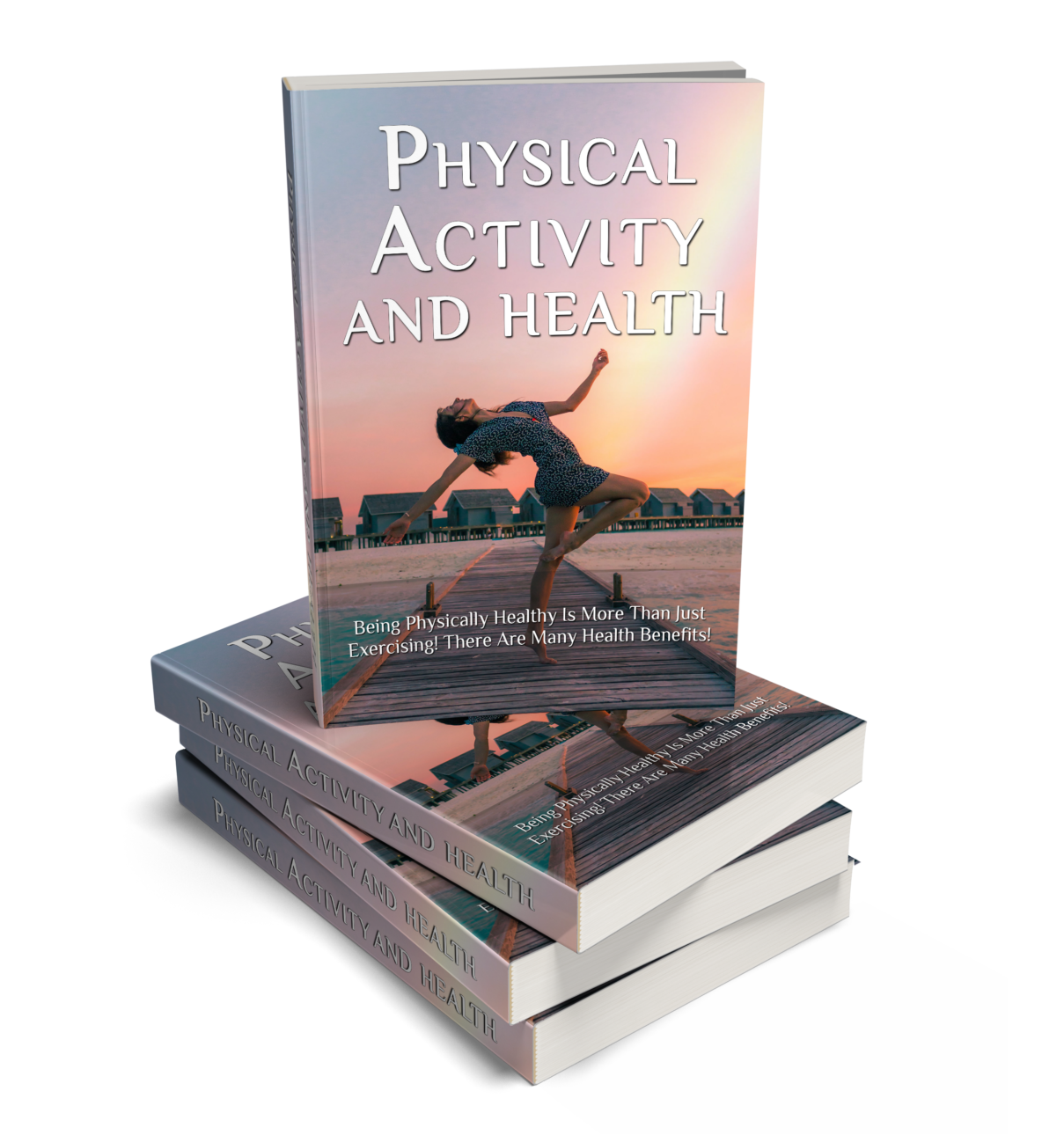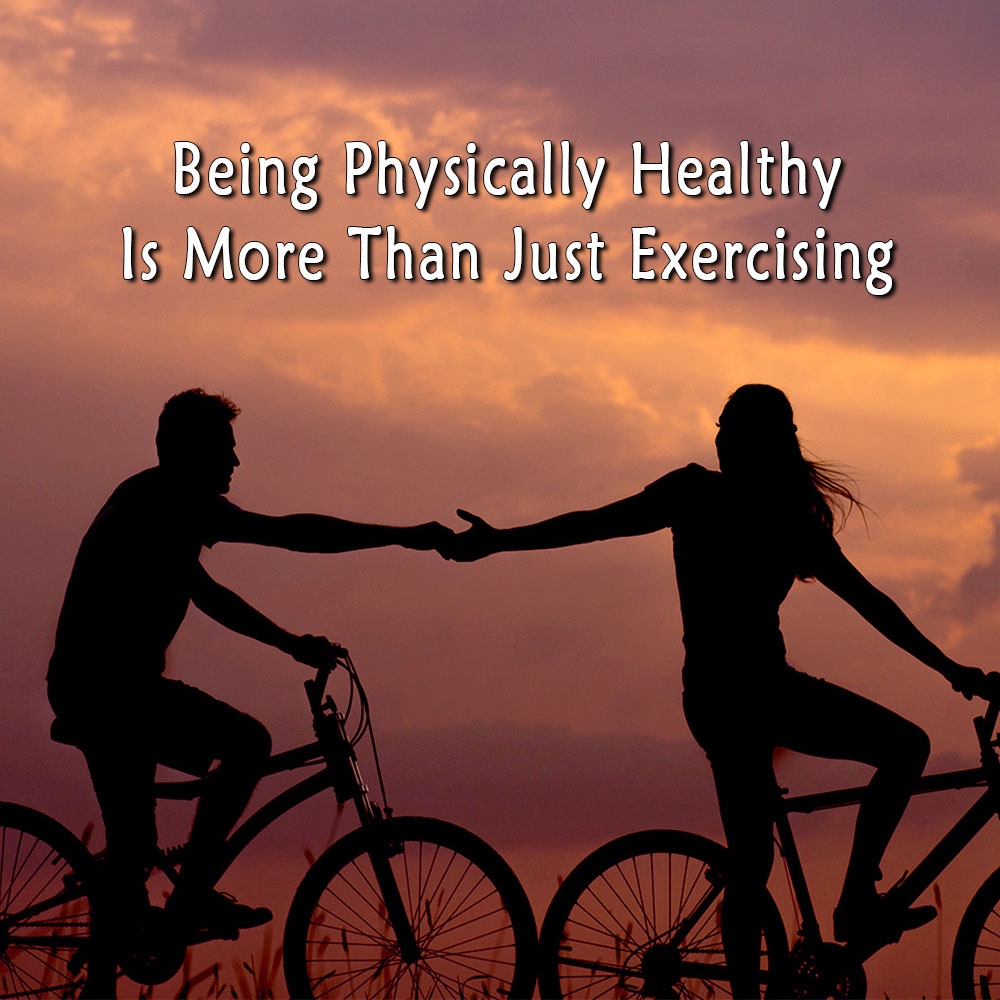Physical health is more than just exercising. If you can achieve physical fitness and maintain it, you’ll benefit in many ways.
Physical fitness refers to your body’s ability to move efficiently so that you can perform your daily activities.
When we say efficiently, it means that you can do the activities using the least amount of effort.
You are physically fit if you can do your daily chores or activities and still have enough energy for leisure and other hobbies during the day. You are also physically fit if you can respond to emergencies quickly, like running or moving fast to prevent or stop an injury.
Therefore, physical fitness is about movement, not just about exercise. It’s not about how many reps you can do or how many minutes you spend working out. It’s about being able to move freely and unrestrained and enjoying moving without pain.
It’s just so important to maintain physical fitness for improved health and longevity, and here are some of the benefits.
- Increased energy levels to sustain you throughout the day.
- Improved cardiovascular health.
- Strong bones and muscles, and prevents bone and muscle loss.
- Improved mood and self-esteem.
- Better mental and emotional health.
Different Parts of Physical Health and Fitness
Physical fitness can be divided into health-related and skills-related fitness.
Components of Health-Related Fitness
Health-related physical fitness is important in helping you prevent chronic illnesses, perform your daily activities effectively, and maintain overall wellness.
Here are the components of health-related physical fitness explained.
- Cardiorespiratory endurance – This refers to your body’s ability to move or exercise for an extended time without stopping.
- Strength – This refers to how much force your muscles can exert or resist, such as lifting heavy objects.
- Muscular endurance – This refers to your ability to use your muscles repeatedly without becoming exhausted.
- Flexibility – This refers to your range of motion and using your joints without injuring yourself.
- Body composition – This refers to the different types of tissues making up the body.
- Power – This is your ability to use your strength quickly.
Components of Skill-Related Fitness
Skill-related physical fitness is all about your motor skills. They are important if you are into sports and other activities, but are also beneficial and even essential for daily operative function. You may not be good in all the skill- related physical fitness sections, and that’s okay.
Here are some components of skill-related physical fitness explained.
- Balance – This, of course, refers to your ability to stay upright when standing or moving. Having good balance prevents falls too.
- Coordination – This refers to how you can use your body when doing tasks. Think of catching a ball. You need to have good eye and hand coordination to be able to catch the ball.
- Speed – This is your ability to perform activities quickly. Move your fingers fast to complete a Rubik’s cube… now that’s skill-related fitness!
- Reaction time – This refers to the amount of time it takes for you to move in response to an action.
- Agility – This is about how you can change your body’s position quickly and your ability to control your movements.
Physical Fitness Is Important for a Healthy Life
Physical fitness is essential for everyone, whether a child, an adult, or the elderly. It promotes good health, helping to maintain a lower risk of developing lifestyle diseases such as type 2 diabetes, cardiovascular diseases, cancer, and other chronic diseases.
Physical fitness also helps you avoid injuries while you perform your everyday activities effectively. More than that, it allows you to enjoy the movement with less pain and discomfort than you otherwise would have.
In Summary
It is important to incorporate physical fitness into your daily routine. Fitness is defined by the state of your body rather than the exercise routines that you do. It’s more about your ability to do your activities with enough energy and no fatigue. It’s about living and using a healthy body!
So make physical fitness not just a goal but a priority. It is an important goal that you can achieve and maintain in your life, and your older self will thank you in the future!
Special Offer!
You Will Find This Course In You Earth Plus
Coming Soon
Are You Sick of Feeling Pain and Discomfort When Doing Everyday Things?

Do you wish you could enjoy your life more, but your body is holding you back?
Do you dread exercising? Does your exercise regime not seem to be working for you as it should? Why? Are you doing the right type of exercises for you and your desired lifestyle?
Physical Activity and Health
This eBook can give you the answers to these questions and so many more.
Many factors combine to contribute to our quality of life, but certainly being able to use our bodies as much as we want, with as little pain and discomfort as possible, is high up on the list.
How much does your health matter to you? If you take the time to think about it, your health and fitness are huge factors in how much you get to enjoy this life you are living.
Of course, there are influences beyond our control that can impact our physical health and mobility.
However, even these factors can usually also be alleviated in part by choices we make and things we can do.
Just being able to get through our day, at home or work, ably and free from pain, is a joy. Especially when compared to the alternative, which is the case for so many.
In ‘Physical Activity and Health’, you’ll discover the numerous benefits of physical activity, including its impact on heart health, mental health, weight management, and much more.
You’ll also learn about the various types of physical activity, including aerobic exercise, strength training, and flexibility exercises, and how each can contribute to your healthy lifestyle.
You will learn –
- How being healthy is more than just exercising, and why physical fitness is important for a healthy and enjoyable life.
- The benefits of physical activity and fitness, including improved memory and brain function, increased energy and vitality, reduced injury risk, less anxiety and depression, and a longer lifespan!
- How low-impact exercise can improve your physical fitness with less pain and discomfort.
- The differences (and different benefits) between aerobic, anaerobic, and cardio exercises.
- Why strength training is so much more than just building muscles – the benefits are huge!
- Why flexibility and balance exercise should be a vital part of your exercise routine, and specific exercises to include.
- Ways to test your current level of physical fitness at home – an important first step to any exercise program.
- And much, much more!



